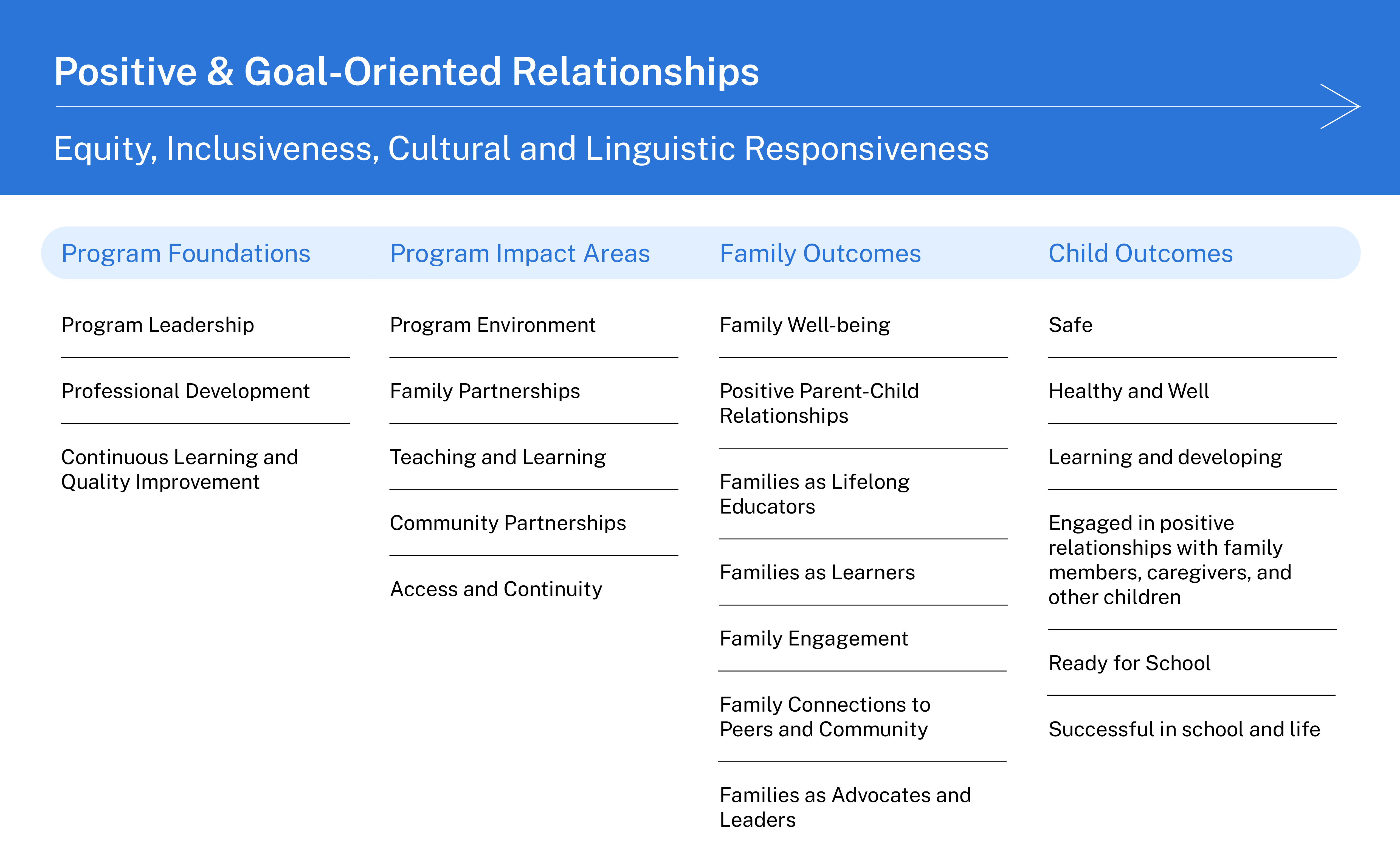
Programs must integrate parent and family engagement strategies in all systems and program services to support family well-being and promote children’s learning and development. The Head Start Parent, Family, and Community Engagement (HSPFCE) Framework shapes DFSS’s family and community engagement strategy. HS/EHS/CCP/PI-funded programs must implement the HSPFCE Framework across the four framework levels: program foundations, program impact areas, family outcomes, and child outcomes. PFA-funded programs are encouraged to use HSPFCE to guide parent engagement strategies across program areas.
Due to COVID-19, the Office of Head Start has provided guidance on how FCE should be implemented during Program Year 2020-2021
For more information, please review the Chicago Early Learning 2.0 Standards pg. 150.

FSS/ FSW play a critical role in the family engagement and partnership building process and must complete the following at minimum:
All programs must adapt a research-based, DFSS approved parent engagement curriculum aligned with the HSPFCE Framework. Programs may either use Parents as Teachers (PAT) or Baby Talk Curricula for parent education in all program options.
DFSS requires HS/EHS/CCP/PI funded programs to create written community partnership agreements with local agencies and organizations that provide services that support the families the agency serves.
The UIC Center for Literacy works with families and communities to promote educational equity through multi-generational literacy programming, research, and advocacy. Below is a list of programs offered: